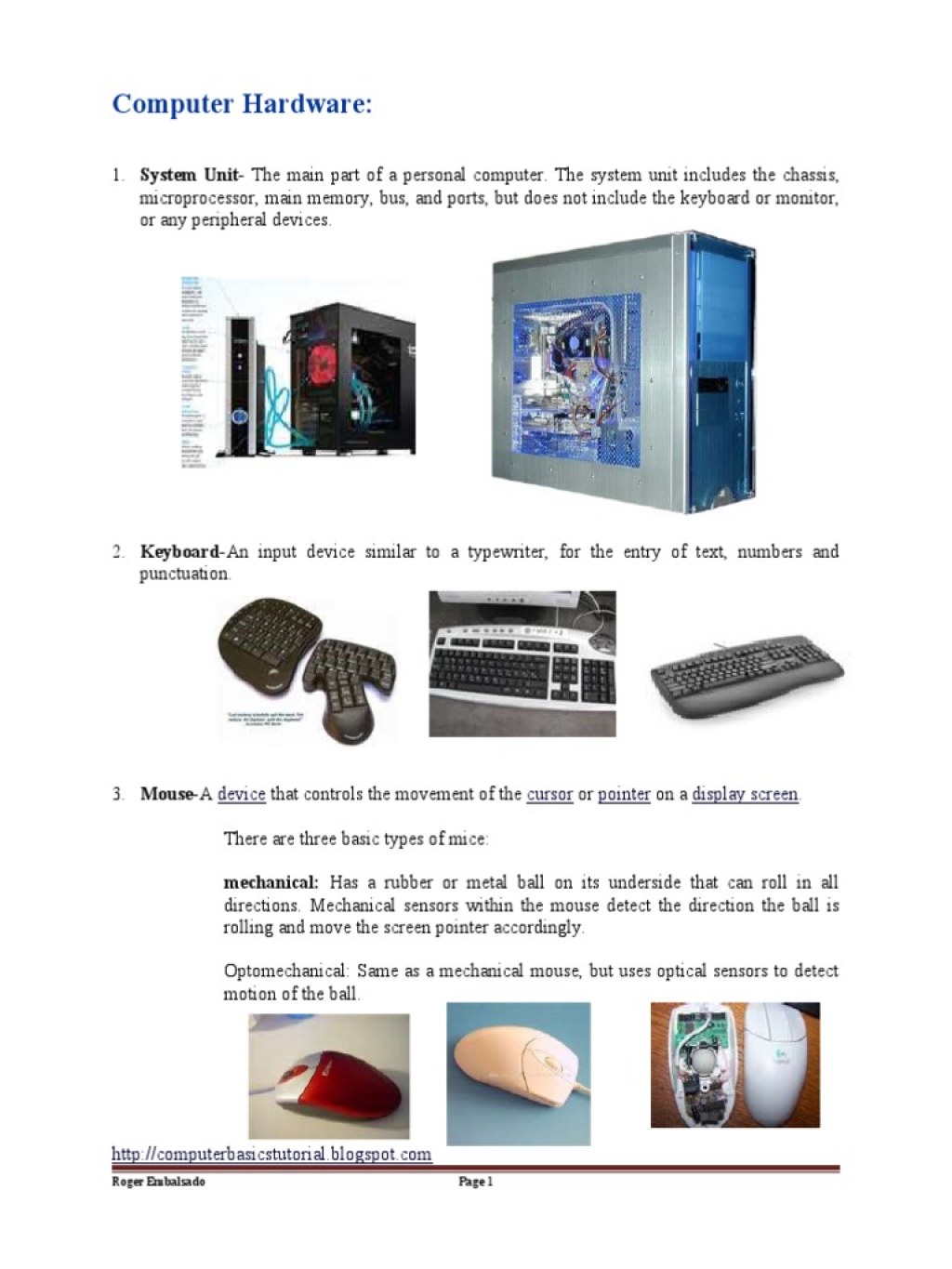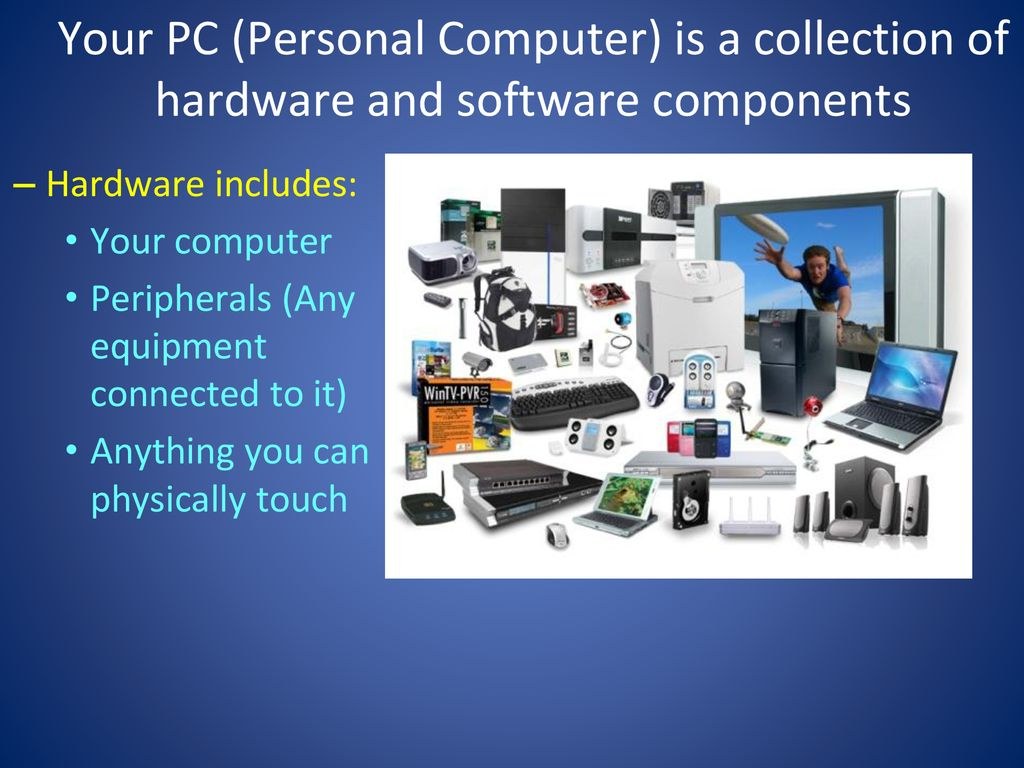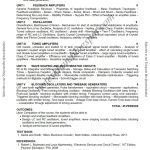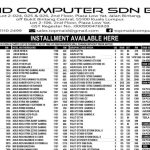Discover The Power Of Computer Hardware: Includes Everything You Need!
Computer Hardware Includes: A Comprehensive Guide
Introduction
2 Picture Gallery: Discover The Power Of Computer Hardware: Includes Everything You Need!


Dear Readers,
Welcome to our comprehensive guide on computer hardware includes! In this article, we will explore everything you need to know about computer hardware and its various components. Whether you are a tech enthusiast, a professional in the IT industry, or someone who simply wants to learn more about computers, this guide is for you. So let’s dive in and discover the fascinating world of computer hardware!
Table of Contents

Image Source: scribdassets.com
1. What is computer hardware?
2. Who uses computer hardware?
3. When was computer hardware developed?
4. Where is computer hardware used?

Image Source: slideplayer.com
5. Why is computer hardware important?
6. How does computer hardware work?
7. Advantages and disadvantages of computer hardware includes
8. FAQ
9. Conclusion
10. Final Remarks
1. What is computer hardware?
Computer hardware refers to the physical components and devices that make up a computer system. It includes the central processing unit (CPU), memory modules, storage devices, input/output devices, and other peripheral devices. These components work together to enable the computer to perform various tasks and run software applications.
2. Who uses computer hardware?
Computer hardware is used by individuals, businesses, educational institutions, and government organizations. From students and professionals to gamers and graphic designers, computer hardware is essential for anyone who relies on computers for work, entertainment, or education.
3. When was computer hardware developed?
The development of computer hardware dates back to the mid-20th century with the invention of the first electronic computers. Over the years, advancements in technology have led to the creation of smaller, faster, and more powerful hardware components, revolutionizing the way we use computers.
4. Where is computer hardware used?
Computer hardware is used in various settings, including offices, homes, schools, data centers, and research facilities. It is used in desktop computers, laptops, servers, smartphones, tablets, gaming consoles, and other electronic devices.
5. Why is computer hardware important?
Computer hardware is the backbone of any computing system. Without hardware components, software applications would not be able to run, and computers would be useless. Hardware determines the performance, capabilities, and reliability of a computer, making it crucial for efficient and effective computing.
6. How does computer hardware work?
Computer hardware works through a combination of electrical signals, binary code, and physical interactions between components. The CPU, or brain of the computer, processes instructions and performs calculations. Memory modules store data temporarily, while storage devices store data permanently. Input/output devices allow users to interact with the computer and transfer data.
7. Advantages and Disadvantages of Computer Hardware Includes
Advantages:
1. Increased processing power allows for faster and more efficient computing.
2. Expanded storage capacity enables the handling of large amounts of data.
3. Improved graphics capabilities enhance visual experiences in gaming and multimedia applications.
4. Compatibility with a wide range of software and peripherals.
5. Hardware upgrades can extend the lifespan and performance of a computer.
Disadvantages:
1. Costly investment, especially for high-performance hardware.
2. Complex and technical nature may require expertise for maintenance and troubleshooting.
3. Limited portability compared to software solutions.
4. Potential compatibility issues between hardware components and software applications.
5. Hardware failures can result in data loss and system downtime.
8. FAQ
1. Can I upgrade my computer hardware?
Yes, computer hardware can be upgraded to improve performance, increase storage capacity, or add new features. However, compatibility with existing components and system requirements should be considered before making any upgrades.
2. How often should I replace my computer hardware?
The lifespan of computer hardware depends on several factors, including usage, quality, and advancements in technology. Generally, it is recommended to replace hardware components every 3-5 years to ensure optimal performance and compatibility with the latest software.
3. What should I do if my computer hardware fails?
In case of hardware failure, it is advisable to consult a professional technician for diagnosis and repair. Attempting to fix hardware issues without proper knowledge and tools may result in further damage.
4. Can I use external hardware devices with my computer?
Yes, most computers are equipped with ports and interfaces that allow the connection of external hardware devices, such as printers, scanners, cameras, and storage drives. Compatibility and drivers may need to be considered.
5. Is computer hardware different from computer software?
Yes, computer hardware refers to the physical components, while computer software encompasses the programs and applications that run on the hardware. Both are essential for a functional computer system.
9. Conclusion
In conclusion, computer hardware is the foundation of modern computing. It enables us to perform tasks, access information, and connect with the digital world. Understanding the different components and their roles is crucial for making informed decisions when purchasing, upgrading, or troubleshooting computer hardware. We hope this guide has provided you with valuable insights and knowledge about computer hardware includes.
10. Final Remarks
Dear Friends,
Thank you for joining us on this journey to explore computer hardware includes. We hope you have found this guide informative and helpful in understanding the world of computer hardware. Remember, technology is constantly evolving, and keeping up with the latest developments will empower you to make the most of your computing experience. If you have any further questions or need assistance, feel free to reach out to us. Happy computing!
This post topic: Electronics

